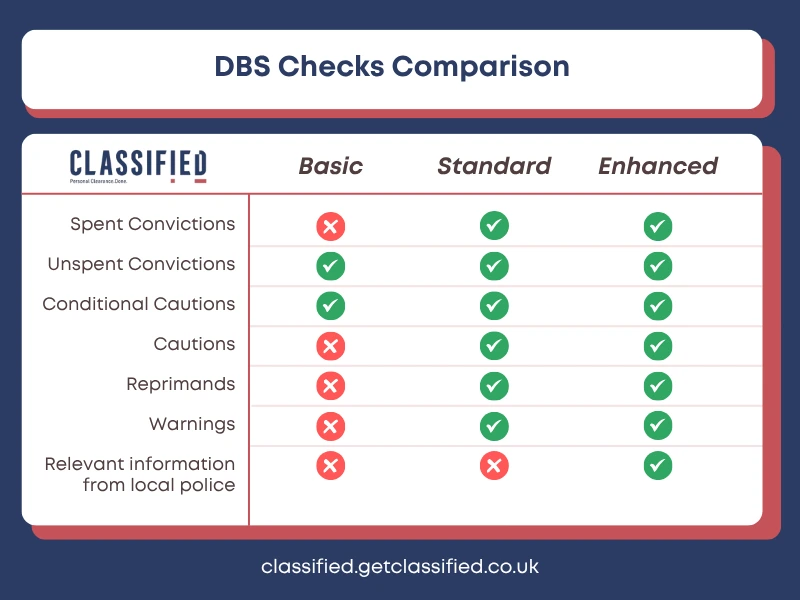What’s the Difference Between Basic, Standard and Enhanced DBS Checks?
When it comes to hiring the right people—especially for roles involving trust, security, or working with vulnerable individuals—knowing a candidate’s criminal background can be essential. This is where DBS (the Disclosure and Barring Service) checks come in. But with three main types—Basic, Standard, and Enhanced—it’s important to understand which level of check is appropriate for which type of role.
Let’s break down the differences, uses, and why these checks matter.
Basic DBS Check
What it shows:
- Any unspent criminal convictions or conditional cautions.
Who it's for:
- Roles that don’t require close contact with vulnerable people or high security clearance.
- Useful for employers in industries like retail, logistics, and general administration.
Why it’s important:
- Gives a general sense of a candidate’s criminal background without going into detail.
- Often used for self-employed individuals or as part of a general vetting process.
Learn more about our DBS Basic checks
Standard DBS Check
What it shows:
- Both spent and unspent convictions.
- Cautions, reprimands, and final warnings (subject to filtering rules).
Who it's for:
- Roles with a higher level of responsibility or trust, such as:
- Accountants
- Court officers
- Some legal or financial positions
Why it’s important:
- Helps ensure the candidate is suitable for roles that require integrity and reliability.
- Provides a deeper look into someone’s criminal history than the Basic check.
Enhanced DBS Check
What it shows:
- Everything in the Standard check, plus:
- Any relevant information held by local police that’s considered necessary for the role.
- (Optional) Checks against the Children’s Barred List or Adults’ Barred List, depending on the role.
Who it's for:
- Roles involving direct work with children or vulnerable adults, such as:
- Teachers
- Care workers
- Healthcare professionals
- Foster carers
Why it’s important:
- Provides the most comprehensive view of a person’s criminal background.
- Ensures safeguarding in environments where vulnerable individuals must be protected.
Why DBS Checks Matter
DBS checks are an essential part of safeguarding, trust, and compliance. They help employers:
- Make informed hiring decisions.
- Protect the public, particularly vulnerable groups.
- Meet legal and regulatory requirements.
Choosing the right level of check isn’t just about gathering information—it’s about doing the right thing for the safety and integrity of your workplace and the people you serve.
Final Thoughts
Understanding the difference between Basic, Standard, and Enhanced DBS checks ensures you request the right level of vetting for each role. Not only does this protect your organisation, but it also builds trust with your clients, service users, and employees.
If your business handles hiring or works with sensitive populations, integrating the right DBS check into your recruitment process is a smart and responsible move.
